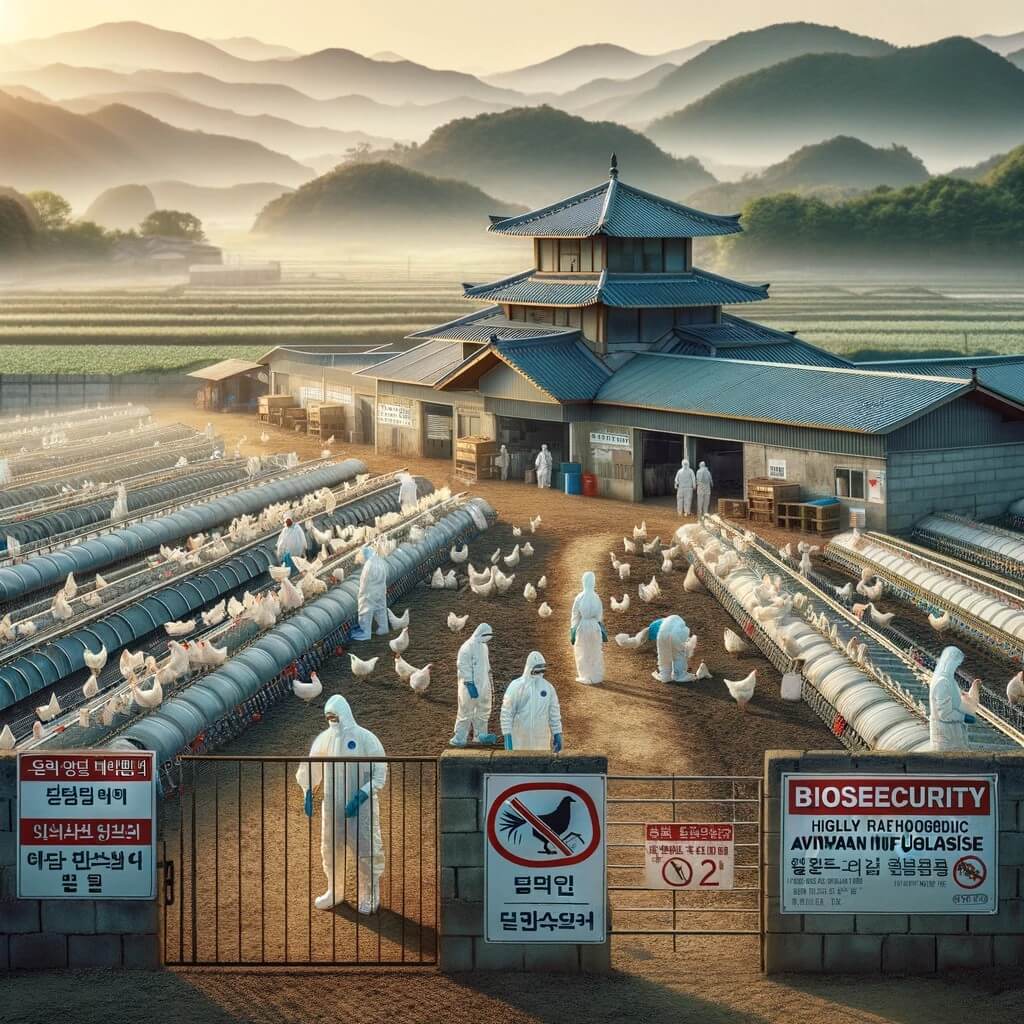Amid mounting concerns over the increasing spread of highly pathogenic avian influenza (AI) in South Korea, the poultry industry faces a serious challenge. The number of confirmed cases of H5 AI infection in poultry farms has surged to 20, prompting swift action from authorities to curb the outbreak and safeguard the poultry sector.
The latest reports from the Central Disaster and Countermeasures Headquarters on AI indicate that two duck farms in Buan, North Jeolla Province, have fallen victim to the highly pathogenic H5 AI infection. This brings the total count of confirmed cases for the season to 20 since the initial case was identified at a duck farm in Goheung, South Jeolla Province, on December 4.
In response to the escalating crisis, authorities have mobilized an initial response team to the affected farms in Buan. They have initiated critical quarantine measures to contain the outbreak, including cordoning off the affected farms, conducting an epidemiologic study, and culling affected chickens. The goal is to prevent further spread of the virus among poultry populations.
The provincial government has taken decisive action to curb the spread of the virus. They have issued a 24-hour standstill order, effective from 12 p.m. on Saturday. This order prohibits the movement of personnel and vehicles from duck farms and related livestock facilities. The intent is to minimize the potential for AI transmission by restricting the movement of people and vehicles associated with these facilities.
Economic impact on the poultry industry
The rapid increase in AI cases is a cause for concern for public health and the poultry industry in South Korea. The culling of infected birds and the imposition of standstill orders can have significant economic repercussions. Poultry farmers face losses due to the destruction of their flocks, while the industry may experience disruptions in the supply chain.
While the primary concern is the impact on the poultry industry, protecting public health remains paramount. Highly pathogenic AI can potentially infect humans, and its spread must be curtailed to prevent potential outbreaks among the population. Therefore, the stringent measures taken by authorities are essential to safeguard the poultry industry and the public’s health.
Biosecurity measures play a crucial role in preventing the spread of avian influenza. Farms and facilities are encouraged to enhance their biosecurity protocols to reduce the risk of infection. These measures include controlling access to the farm, proper sanitation, disinfection, and ensuring that personnel follow strict hygiene practices.
Vaccination and surveillance
In addition to biosecurity measures, poultry vaccination is a key strategy in preventing avian influenza. Authorities should consider vaccinating susceptible birds in affected regions to create additional protection against the virus. Furthermore, ongoing surveillance efforts are essential to detect outbreaks early and respond promptly.
The outbreak of highly pathogenic avian influenza is not unique to South Korea. The global poultry industry faces similar challenges, with outbreaks occurring in various regions. International collaboration and information sharing are critical to understanding the virus’s spread and developing effective strategies for containment.
As the number of highly pathogenic avian influenza cases in South Korean poultry farms continues to rise, authorities are taking swift and decisive action to contain the outbreak. The imposition of a 24-hour standstill order and the implementation of stringent biosecurity measures are essential to protect the poultry industry and public health.
The economic impact on the poultry sector is a concern, but safeguarding public health remains the top priority. Vaccination, surveillance, and global cooperation are key components of the strategy to combat this ongoing challenge. With concerted efforts and effective measures, South Korea aims to mitigate the impact of the avian influenza outbreak and prevent further spread.





